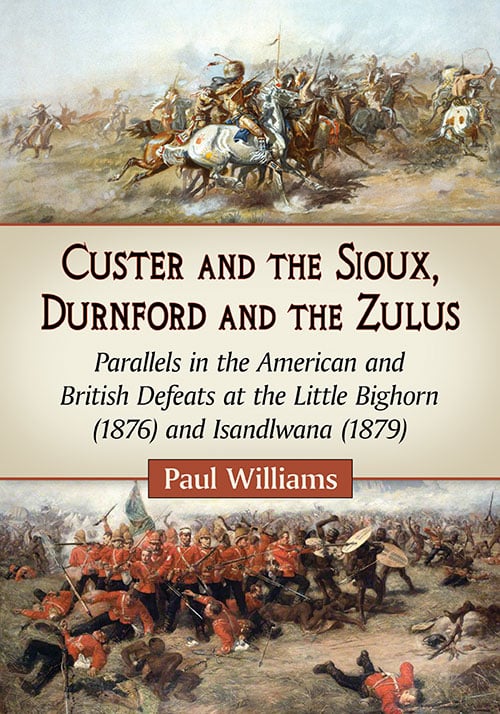Custer and the Sioux, Durnford and the Zulus
Parallels in the American and British Defeats at the Little Bighorn (1876) and Isandlwana (1879)
$29.95
In stock
About the Book
In June 1876 the 7th U.S. Cavalry was savagely defeated at the Little Bighorn in the Montana wilderness during an attempt to seize Sioux and Cheyenne hunting grounds. Three years later redcoats mirrored this utter disaster with an equally high-handed grab for Zulu lands in South Africa. Lieutenant Colonel George A. Custer and Lieutenant Colonel Anthony W. Durnford had much in common, from modes of dress to the way they died. This book interweaves the stories of the two soldiers and their final battles, revealing how, to an astonishing degree, similar personalities, aims, tactics, weapons, stupidity and a gross underestimation of the powers of the native people led to calamitous defeat.
About the Author(s)
Bibliographic Details
Paul Williams
Format: softcover (7 x 10)
Pages: 220
Bibliographic Info: 27 photos & illustrations, 4 maps, appendices, notes, bibliography, index
Copyright Date: 2015
pISBN: 978-0-7864-9794-2
eISBN: 978-1-4766-2032-9
Imprint: McFarland
Table of Contents
Prologue 1
1. Their Land Is Ours 3
2. Deception and Deceit 22
3. The Impossible Ultimatum 29
4. The Three-Column Plan 38
5. The Three-Column Advance 54
6. The Divided Command 79
7. The Last Man, the Last Bullet 99
8. Besieged 126
9. Finding the Dead and the Living 142
10. So Who Was to Blame? 156
11. The Fading Comet 166
12. Aftermath 178
Appendix A: Report on the Battle of the Little Big Horn (Reno) 185
Report (Benteen) 190
Appendix B: The Court of Inquiry (Isandlwana) 192
Chapter Notes 199
Bibliography 205
Index 207
Book Reviews & Awards
- “Paul Williams is to be commended for marshaling relevant sources and identifying key parallels between commanders and battles in his suggestive comparative study”—Michigan War Studies Review
- “Insightful…brilliantly reproduced photographs…the numerous maps are models of clarity and precision”—True West.





